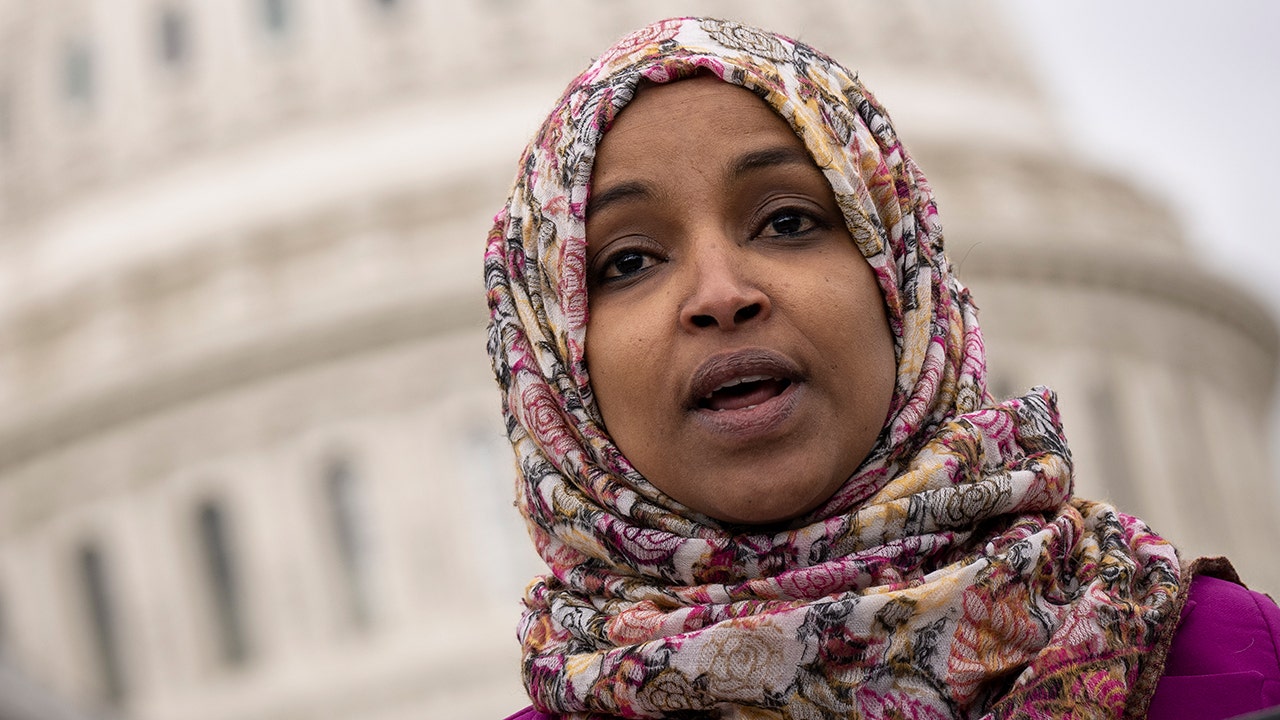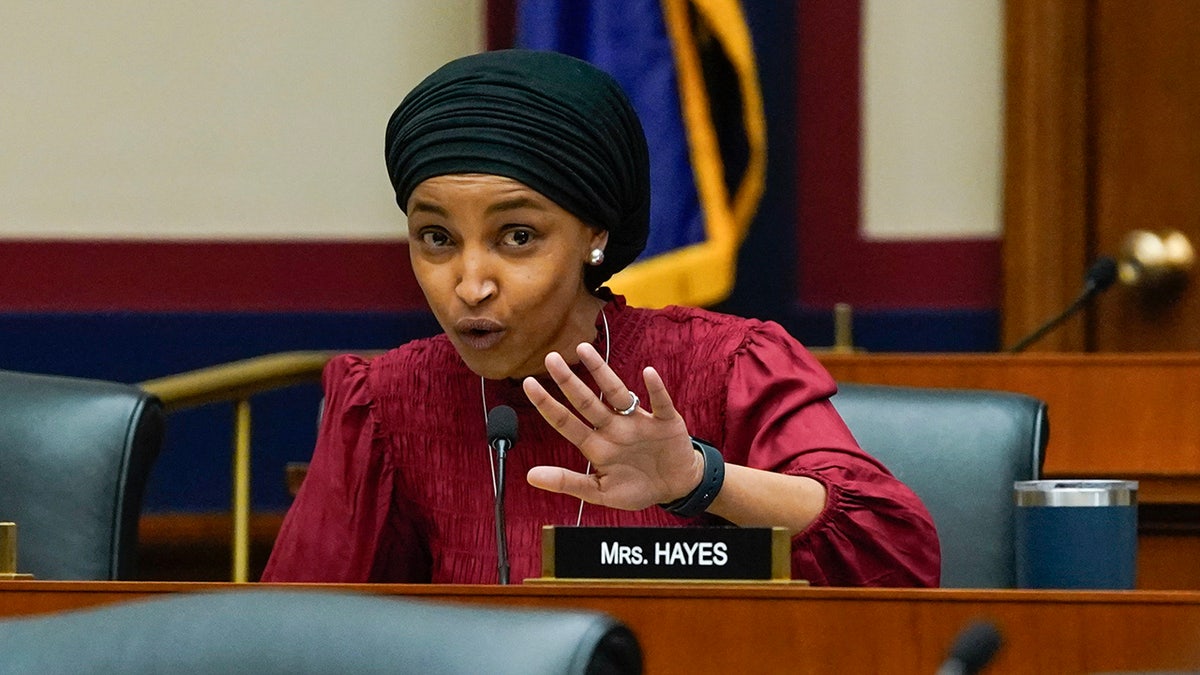Breaking: Ilhan Omar & Tim Walz Team Up What's Next?
Can the political paths of Ilhan Omar and Tim Walz truly be understood in isolation, or are they inextricably linked by the currents of Minnesota politics and the evolving landscape of the Democratic Party? Their careers, though distinct in their trajectories and the specific challenges they face, are nonetheless intertwined, reflecting a broader narrative of progressive politics in a changing America.
Ilhan Omar, a Somali-American refugee, burst onto the national stage with her election to the U.S. House of Representatives in 2018, representing Minnesota's 5th congressional district. Her victory, a historic first for a Somali-American and one of the first Muslim women in Congress, signaled a significant shift in the demographics and ideologies represented in American politics. Her platform, rooted in progressive ideals, quickly positioned her as a prominent voice on issues such as social justice, economic inequality, and foreign policy. Simultaneously, Tim Walz, a former U.S. Representative representing Minnesota's 1st congressional district, made a successful transition to the governorship of Minnesota in 2019. His victory, fueled by a moderate-progressive appeal, marked a significant moment for Democrats in the state, particularly following a period of Republican control. The contrast between their electoral paths, their policy agendas, and the constituencies they serve offers a fascinating lens through which to examine the complexities of modern American politics.
| Individual | Ilhan Omar | Tim Walz |
|---|---|---|
| Full Name | Ilhan Abdullahi Omar | Timothy James Walz |
| Date of Birth | October 4, 1982 | April 6, 1964 |
| Place of Birth | Mogadishu, Somalia | West Point, Nebraska, U.S. |
| Education | North Dakota State University (B.A.) | Chadron State College (B.S.), University of Nebraska (M.A.) |
| Profession | Politician | Politician |
| Political Affiliation | Democratic-Farmer-Labor Party (DFL) | Democratic-Farmer-Labor Party (DFL) |
| Current Position | U.S. Representative for Minnesota's 5th congressional district | Governor of Minnesota |
| Years in Office (Omar) | 2019 Present | N/A |
| Years in Office (Walz) | N/A | 2019 Present |
| Key Policy Areas | Social justice, economic equality, foreign policy, climate change | Healthcare, education, economic development, infrastructure |
| Key Legislation (Examples) | Various bills related to social and economic justice, foreign policy. | State budget and legislative initiatives related to education, healthcare, and infrastructure. |
| Website for Reference | omar.house.gov | mn.gov/governor |
The convergence of their careers in Minnesota offers a rich case study in the dynamics of political power. Omar's rise to prominence, fueled by grassroots support and a vocal advocacy for progressive causes, has positioned her as a key figure in the national debate. Her policy positions, often challenging the status quo, have resonated with a diverse constituency and have also drawn significant scrutiny and criticism. Her focus on issues like Medicare for All, the Green New Deal, and immigration reform reflects a broader movement within the Democratic Party towards more ambitious policy goals.
Walz's gubernatorial victory, on the other hand, represents a different facet of the Democratic Party's approach. His campaign, emphasizing pragmatic governance and a commitment to working across the aisle, appealed to a broader spectrum of voters. His focus on traditional issues such as education, healthcare, and economic development has positioned him as a leader who is willing to find common ground while pursuing progressive goals. This approach, in contrast to Omar's more direct and often confrontational style, showcases the breadth of strategies employed by the Democratic Party in the pursuit of political power.
The differences in their backgrounds are stark. Ilhan Omar's story, a tale of escaping war and building a new life, is a testament to the immigrant experience and the American dream. Her political career has been shaped by a deep commitment to social justice and a desire to amplify the voices of marginalized communities. This experience has informed her policy priorities and her approach to political discourse. Conversely, Tim Walz's background, including his service in the Army National Guard and his experience as a teacher, provides a different perspective. His political journey reflects a more traditional path within the Democratic Party, emphasizing a pragmatic approach and a focus on serving his constituents.
The intersection of their political careers also reveals a complex interplay of political ideologies and shifting demographics in Minnesota. Minnesota has a long and complex political history, with a strong tradition of progressive politics, particularly through the Farmer-Labor Party, which eventually merged with the Democratic Party. The state has often been a bellwether for national trends, and the trajectories of Omar and Walz reflect some of the key developments in the state's politics, including the rise of identity politics, the increasing influence of urban centers, and the ongoing debate over the role of government. The shifting demographics of Minnesota, with a growing population of immigrants and people of color, have influenced the political landscape, creating new opportunities and challenges for both parties.
Omar's presence in Congress is a constant reminder of the power of representation and the importance of amplifying marginalized voices. Her outspokenness on issues of social justice has positioned her as a prominent voice for progressive causes, both within the Democratic Party and beyond. Her willingness to challenge the established order has also made her a target of criticism and scrutiny, highlighting the challenges faced by politicians who advocate for significant social and political change. The attacks she has faced, often rooted in prejudice and misinformation, are a stark reminder of the enduring challenges of racism and xenophobia in American society.
Walz, as governor, faces a different set of challenges. His responsibility lies in managing the state's complex bureaucracy, balancing the needs of diverse constituencies, and navigating the often-contentious relationship between the executive and legislative branches. His ability to build consensus and find common ground is essential to his effectiveness, but also puts him in the position of having to make difficult compromises. His leadership style, characterized by a willingness to engage in dialogue and collaborate across the aisle, reflects the practical realities of governing.
The policy positions of Omar and Walz also underscore the diverse viewpoints within the Democratic Party. While they share a commitment to core progressive values, their specific priorities and approaches to policy differ. Omar has been a strong advocate for policies aimed at addressing systemic inequities, such as criminal justice reform, affordable housing, and climate change. She has been a vocal critic of U.S. foreign policy, advocating for diplomacy and human rights. Walz, while also supporting progressive policies, has often prioritized issues with a broader appeal, such as education and healthcare. His focus on economic development and infrastructure projects reflects his understanding of the needs of the state's diverse economy. The differences in their policy priorities, rather than representing a fundamental divide, reflect the breadth of the Democratic Party's agenda and the diverse constituencies it seeks to represent.
The relationship between Omar and Walz, while not always explicitly defined, is a critical element of Minnesota's political dynamics. While there is no direct indication of a strong collaboration between the two politicians, their shared membership in the DFL suggests a degree of collaboration, even if not in the public eye. Their shared political goals are reflected in the state-level policies and the national representation. Their ability to work together, or even to coexist, is a test of their ability to navigate the complex political landscape of Minnesota.
The challenges they face are as diverse as their backgrounds. Omar is constantly navigating the intense scrutiny of her actions, her policy stances, and her personal life. She must negotiate the complex balance of representing her constituents while fighting for her progressive values on the national stage. The constant media coverage, the social media attacks, and the constant pressure to conform to the political norms of Washington represent a test of her resilience and her commitment to her principles.
For Walz, the challenge is balancing the needs of a diverse state, navigating complex budget issues, and ensuring the effective operation of state government. He must work with the legislature to achieve his goals, manage the state's economic resources, and respond to the changing needs of his constituents. His ability to unite a diverse population, address their concerns, and chart a course toward a better future is a reflection of his leadership skills.
Looking to the future, the paths of Ilhan Omar and Tim Walz will continue to shape the political landscape of Minnesota and beyond. Omar's continued presence in Congress will likely amplify the voice of progressives on national issues, including social justice, economic inequality, and foreign policy. Her ability to build coalitions, to mobilize grassroots support, and to challenge the status quo will be essential to her political success. She will remain a significant figure in the ongoing national debates surrounding issues such as immigration reform, climate change, and healthcare.
Walz's continued leadership of Minnesota will be equally important. His ability to govern effectively, to build consensus, and to address the state's key challenges will be critical to the future of Minnesota. His ability to navigate the complexities of state government, to maintain economic growth, and to improve the lives of Minnesota residents will shape the trajectory of the state for years to come. The success of his administration will serve as a model for other states navigating the challenges of the 21st century.
The convergence of their political careers offers a glimpse into the evolving dynamics of the Democratic Party, the changing political landscape of the United States, and the ongoing struggle for a more just and equitable society. Their stories, though distinct, are a part of the broader narrative of American politics, a story of progress, of setbacks, and of the ongoing struggle for a better future.
In understanding the political journey of Ilhan Omar and Tim Walz, it is important to acknowledge the complex factors that have shaped their careers. From their individual backgrounds and experiences to the political climate in Minnesota and the shifting dynamics within the Democratic Party, their stories are a testament to the forces that shape American politics. By studying their journeys, analyzing their actions, and understanding the interplay of their political goals, we can gain a deeper understanding of the challenges and opportunities facing the United States.
The story of Ilhan Omar and Tim Walz is ongoing, and its evolution will continue to be shaped by the events that unfold. Their roles in the political arena will have a lasting impact on Minnesota and the nation as a whole. It remains to be seen how their paths will intersect in the future and what they will accomplish. However, their stories are a critical part of the evolving narrative of American politics.


